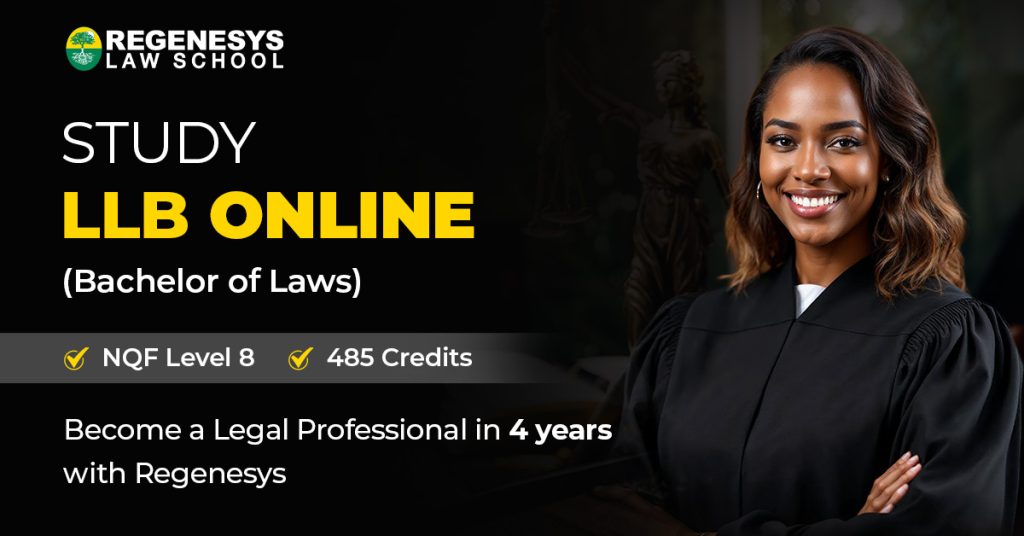In South Africa, gaining admission into an LLB degree programme is not only about having a passion for law but also about meeting specific academic entry standards. Universities look closely at your matric results, paying attention to your APS (Admission Point Score), your performance in English, and whether you took Mathematics or Mathematical Literacy. These benchmarks ensure students are prepared for the academic demands of studying law.
Understanding the LLB APS and matric requirements in SA can be confusing, as different universities may have slightly different thresholds, subject preferences, and policies for recognising foreign qualifications.
In this article, we will explore everything you need to know about matric evaluation, English and maths codes and how overseas qualifications are assessed.
Table of Contents
- Understanding LLB APS and Matric Requirements in South Africa
- How are Matric Results Evaluated for Law?
- English Requirements for LLB
- Mathematics vs Mathematical Literacy for Law
- Minimum APS Thresholds for Law Studies
- Recognition of Overseas Qualifications
- Additional Factors That Affect Law Admission
- Common Misunderstandings About LLB Admission
- Preparing Your Application for LLB
- Explore Our Other Programmes
- Conclusion
- FAQs
Understanding LLB APS and Matric Requirements in South Africa
The LLB APS and matric requirements in SA form the foundation for determining whether you can pursue a Bachelor of Laws degree. The Admission Point Score (APS) is a points-based system that converts your matric marks into a score. Each subject result is allocated a point value, and universities use your total to decide if you meet their entry criteria.
When it comes to LLB law requirements, the LLB APS and matric requirements in SA are only one aspect of the overall criteria. Universities also specify certain subject codes for English and, in some cases, Mathematics. These codes indicate your level of performance in those subjects and help gauge whether you have the language and reasoning skills needed to handle the rigours of legal studies.

How are Matric Results Evaluated for Law?
Before you can think about APS scores or subject codes, it’s important to know how your matric certificate is assessed for LLB APS and matric requirements in SA. Universities don’t simply look at your overall pass; they examine your performance in specific subjects that are relevant to legal studies.
Your National Senior Certificate (NSC) results are broken down into percentages and corresponding levels. Each level matches an APS point value. For example, a mark between 80–100% is level 7, which is the highest level and carries the most APS points.
Here are the main factors universities evaluate:
1. Performance in Key Subjects
English is a compulsory subject for LLB admission. Some universities may also look at your marks in Mathematics or Mathematical Literacy to determine if you meet their standards.
2. Overall APS
Even if you do well in English, you must still meet the overall APS score needed for law. This is where many students fall short, as the bar can be quite high at competitive institutions.
3. Minimum Pass Levels
Having the bare minimum pass in subjects like English might not be enough. Many institutions set higher standards, such as requiring at least level 5 (60–69%) for certain subjects.
Understanding these elements helps you better prepare your application and see where you might need to improve to meet the requirements to study law in South Africa.
However, at Regenesys, to qualify for the Bachelor of Laws (LLB) programme, you need a Matric with a Bachelor pass or an NQF level 4 equivalent qualification. This ensures students have the foundational academic ability to handle the demands of legal study.

English Requirements for LLB
English plays a critical role in the law matric requirements. Legal studies involve extensive reading, precise writing, and the ability to argue logically. That’s why many universities require English code 5, which means achieving at least 60–69% in English.
An English code requirement ensures you can cope with the language demands of an LLB programme. Depending on the university, this requirement may apply whether you took English as a Home Language or as a First Additional Language.
To summarise, here’s what you need to keep in mind about English for LLB APS and matric requirements in SA:
- English Home Language: Most universities require at least a code 5.
- English First Additional Language: The same code 5 requirement usually applies, although some institutions might accept a slightly lower code.
- Why It Matters: Law is taught in English at most South African universities, so strong language skills are essential for academic success.
Regenesys specifies a slightly different benchmark: English 1st Language – minimum 50%, or English 2nd Language – minimum 60%. You must also be competent in English, written and oral communication skills at NQF Level 4, which ensures you can handle legal writing, argumentation, and academic discourse.
Read more on Bachelor of Law Entry Requirements in South Africa: Your Guide for Starting a Legal Career here!
Mathematics vs Mathematical Literacy for Law
When discussing maths vs maths literacy code for law admission, it’s important to note that Mathematics is not always a compulsory subject for LLB programmes. However, your performance in maths or maths literacy can still influence whether you meet LLB APS and matric requirements in SA.
- Mathematics: Some universities prefer students who have taken Mathematics, as it reflects analytical ability. A minimum level 3 or 4 may be required.
- Mathematical Literacy: Many institutions accept this for law admission, but they might require a higher performance level (for example, level 4 or above).
- APS Impact: Regardless of which you take, the score contributes to your APS total, which is critical for meeting the APS thresholds.
Regenesys requires applicants to be competent in Mathematics at NQF Level 4. This does not mean you must have high-level pure mathematics, but you should be able to work with numerical reasoning and basic calculations, which can assist with certain areas of legal studies such as commercial or tax law.
Read on Exploring Law Subjects: What You Need to Know Before Starting Your LLB? here!

Minimum APS Thresholds for Law Studies
APS thresholds for LLB vary depending on the university. In competitive law faculties, the threshold can be as high as 35 or more points out of a possible 42. Other institutions might have lower requirements, but they will still insist on a strong performance in English and overall good results in matric subjects.
The following are common factors that determine these thresholds:
- Faculty Size and Demand: Larger faculties might accept more students, leading to slightly lower APS requirements.
- Competition Level: Universities in major cities often have higher APS cut-offs due to the volume of applications.
- Institutional Standards: Some universities maintain consistently high thresholds to ensure only the strongest candidates are admitted.
At Regenesys, our programme accepts A Levels for international students (Africa) and requires a higher level pass with a minimum of 26 APS. This ensures international applicants meet the same academic standards as local students.
Know How To Calculate APS Score? Key Steps for Accurate Results here!

Recognition of Overseas Qualifications
If you hold foreign certificates, your application for an LLB in South Africa will be assessed differently. Universities rely on the South African Qualifications Authority (SAQA) to evaluate overseas qualifications and determine their equivalency to the NSC.
Key points about foreign qualification recognition to help you meet the LLB APS and matric requirements in SA:
1. SAQA Evaluation – You will need to submit your documents for verification and conversion to the South African grading system.
2. APS Conversion – Your foreign results will be translated into an APS to see if you meet the LLB APS and matric requirements in SA.
3. Language Requirement – Even with a foreign qualification, the English code requirement still applies unless you can prove proficiency through standardised tests or prior study in an English-medium institution.
Read on South Africa LLB Admission Requirements 2025: APS, NQF & English Criteria Explained here!
Additional Factors That Affect Law Admission
Meeting the LLB APS and matric requirements in SA is an essential first step for any aspiring law student. However, securing a place in an LLB programme involves more than just ticking the minimum requirement boxes. Universities often have more applicants than available seats, meaning they must apply further selection measures to choose the best candidates. This is especially true for law faculties in major cities, where the demand for places is consistently high.
In addition to academic results, certain institutions may require extra documents, personal statements, or even interviews to assess your motivation and readiness. If you do not meet the entry requirements initially, there are alternative pathways to help you work towards an LLB degree. They are as follows:
1. Competition – Some law faculties have more applicants than spaces, so even if you meet the requirements, selection may be based on the highest APS scores.
2. Supplementary Criteria – Certain universities may request a motivation letter or conduct interviews to assess your suitability.
3. Alternative Routes – If you don’t meet the requirements, you might start with a diploma or higher certificate in law-related studies before transferring into an LLB programme.
Common Misunderstandings About LLB Admission
Many students are confused about the requirements to study law in South Africa, leading to several persistent myths. This confusion often results from mixing up general NSC pass requirements with specific university entry standards. Clearing up these myths is important so you can make informed decisions about your academic pathway. Here are some of the most common misconceptions about the LLB APS and matric requirements in SA:
- Myth 1: You Need Pure Maths to Study Law – False. Maths literacy is accepted at many universities, though you must still meet the APS requirement.
- Myth 2: English Code 4 Is Enough Everywhere – Not true. Most universities require at least English code 5.
- Myth 3: All Universities Have the Same APS Threshold – Incorrect. Each institution sets its own APS score needed.

Preparing Your Application for LLB
Applying for an LLB degree in South Africa requires more than simply sending in your matric certificate. You need to carefully review the LLB APS and matric requirements in SA for your chosen institution and prepare your documents well in advance. This preparation helps you avoid last-minute stress and increases your chances of submitting a complete, error-free application. Remember that law programmes often receive hundreds, if not thousands, of applications, so a well-prepared submission can help you stand out. Calculating your APS score early will also give you time to improve your marks if needed before applying. Below are some practical steps to get your application in order:
- Check Your APS Early: Calculate your APS using your latest marks and see if you meet your chosen university’s threshold.
- Verify Subject Code: Make sure your English and Maths/Math Literacy codes meet the required level.
- Gather Documentation: Keep certified copies of your matric certificate, ID, and other relevant documents ready for submission.
Explore Our Other Programmes
Conclusion
Meeting the LLB APS and matric requirements in South Africa is not just about eligibility – it’s about preparing yourself for the academic and professional demands of the legal field. By understanding the LLB APS and matric requirements in SA, why English and Mathematics or Mathematical Literacy matter, and how foreign qualifications are assessed, you can position yourself as a strong candidate for admission.
At Regenesys Law School, our LLB programme blends academic excellence with practical legal skills, preparing you for a successful career in law. We are currently accepting applications for our October intake, with the programme offered fully online for your convenience. If you meet the entry requirements, this is your chance to study law flexibly without compromising on quality.
Enrol today and begin your legal journey with Regenesys.
FAQs
What is the minimum APS score needed for law in South Africa?
It varies by institution, but many require an APS of 32 or higher. At Regenesys, international students need a higher-level pass with a minimum APS of 26, while South African applicants must have a Matric with a Bachelor pass or NQF Level 4 equivalent.
Can I study law with maths literacy?
Yes, many universities accept maths literacy, but they may require a higher performance level compared to pure maths.
How are foreign certificates assessed for law admission?
They are evaluated by SAQA, which converts them into the South African grading system to determine if you meet the LLB APS and matric requirements in SA.
Which matric subjects are best for law?
While there are no compulsory subjects apart from English, subjects like History, Business Studies, and Life Sciences can be useful.
Does meeting the LLB APS and matric requirements in SA guarantee admission?
No, admission is also influenced by competition, faculty capacity, and sometimes additional selection criteria.







